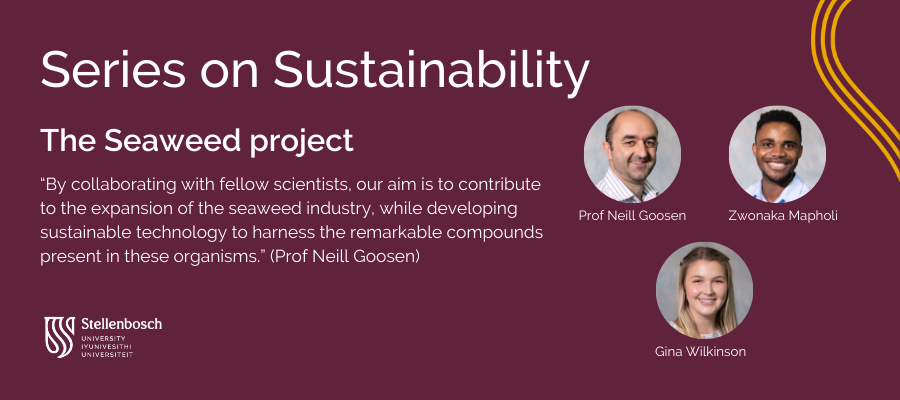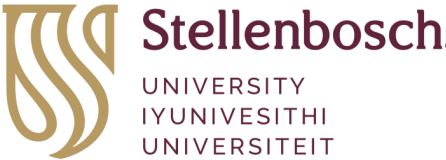
This project started out as research into a very specific, large molecule found in seaweed called fucoidan. As time progressed, the study evolved into a comprehensive endeavour aimed at developing sustainable and environmentally friendly extraction and purification methods to recover multiple valuable compounds from South African seaweed, using a biorefinery approach. “Fucoidan is special because of its properties,” explains Prof Neill Goosen, one of the researchers involved in the project. “It can potentially be used as a treatment for diabetes, and we have recently collaborated with researchers who demonstrated its ability to kill certain cancer cells.”
The extraction and purification are complex because there are many other compounds that co-extract with fucoidan. During the extraction one should also be careful not to damage the fucoidan. According to Goosen, the research team has made good progress in developing extraction methods, and the purification results are also promising. “We are looking forward to increasing our knowledge about the chemical properties of fucoidan, and to start testing our purified fucoidan as a sustainably-produced compound against human disease.” Seaweed is gaining prominence in Western science due to its rapid growth and ability to be farmed on a large scale without the need for freshwater or external fertilizers, thereby leaving a minimal environmental footprint.
Not only has this research seen publications appear, but it has also built up a strong network of local and international collaborators. “By collaborating with fellow scientists, our aim is to contribute to the expansion of the seaweed industry, while developing sustainable technology to harness the remarkable compounds present in these organisms”, Goosen says. He harbours ambitious dreams for the project: “In an ideal world, I envision medicinal products on shelves derived from responsibly and sustainably extracted fucoidan found in South African kelp. While that day may still be a ways off, we are steadily progressing towards it.”
For further reading on this project, follow these links:
Mapholi, Z., Goosen, N.J., 2023. Optimization of fucoidan recovery by ultrasound-assisted enzymatic extraction from South African kelp, Ecklonia maxima. Ultrasonics Sonochemistry 101, 106710. https://doi.org/10.1016/j.ultsonch.2023.106710
Zhang, X., Border, A., Goosen, N., Thomsen, M., 2021. Environmental life cycle assessment of cascade valorisation strategies of South African macroalga Ecklonia maxima using green extraction technologies. Algal Research 58 https://doi.org/10.1016/j.algal.2021.102348
Bordoloi, A., Goosen, N.J., 2020. A greener alternative using subcritical water extraction to valorize the brown macroalgae Ecklonia maxima for bioactive compounds. Journal of Applied Phycology 32, 2307–2319. https://doi.org/10.1007/s10811-020-02043-1



